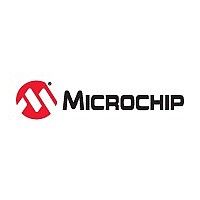PIC18F1320-I/SO Microchip Technology Inc., PIC18F1320-I/SO Datasheet - Page 15

PIC18F1320-I/SO
Manufacturer Part Number
PIC18F1320-I/SO
Description
Microcontroller; 8 KB Flash; 256 RAM; 256 EEPROM; 16 I/O; 18-Pin-PDIP
Manufacturer
Microchip Technology Inc.
Datasheet
1.PIC18F1320-ISO.pdf
(310 pages)
Specifications of PIC18F1320-I/SO
A/d Inputs
7-Channel, 10-Bit
Cpu Speed
10 MIPS
Eeprom Memory
256 Bytes
Input Output
16
Interface
USART
Memory Type
Flash
Number Of Bits
8
Package Type
18-pin SOIC
Programmable Memory
8K Bytes
Ram Size
256 Bytes
Speed
20 MHz
Timers
1-8-bit, 3-16-bit
Voltage, Range
2-5.5 V
Lead Free Status / Rohs Status
RoHS Compliant part
Electrostatic Device
Available stocks
Company
Part Number
Manufacturer
Quantity
Price
Company:
Part Number:
PIC18F1320-I/SO
Manufacturer:
MICROCHIP
Quantity:
35 000
Part Number:
PIC18F1320-I/SO
Manufacturer:
MICROCHIP/微芯
Quantity:
20 000
- Current page: 15 of 310
- Download datasheet (6Mb)
2.4
The EC and ECIO Oscillator modes require an external
clock source to be connected to the OSC1 pin. There is
no oscillator start-up time required after a Power-on
Reset, or after an exit from Sleep mode.
In the EC Oscillator mode, the oscillator frequency
divided by 4 is available on the OSC2 pin. This signal
may be used for test purposes, or to synchronize other
logic. Figure 2-4 shows the pin connections for the EC
Oscillator mode.
FIGURE 2-4:
The ECIO Oscillator mode functions like the EC mode,
except that the OSC2 pin becomes an additional gen-
eral purpose I/O pin. The I/O pin becomes bit 6 of
PORTA (RA6). Figure 2-5 shows the pin connections
for the ECIO Oscillator mode.
FIGURE 2-5:
2004 Microchip Technology Inc.
Clock from
Ext. System
Clock from
Ext. System
External Clock Input
F
RA6
OSC
/4
EXTERNAL CLOCK INPUT
OPERATION
(EC CONFIGURATION)
EXTERNAL CLOCK INPUT
OPERATION
(ECIO CONFIGURATION)
OSC1/CLKI
OSC2/CLKO
OSC1/CLKI
I/O (OSC2)
PIC18FXXXX
PIC18FXXXX
2.5
For timing insensitive applications, the “RC” and
“RCIO” device options offer additional cost savings.
The RC oscillator frequency is a function of the supply
voltage, the resistor (R
ues and the operating temperature. In addition to this,
the oscillator frequency will vary from unit to unit due to
normal manufacturing variation. Furthermore, the dif-
ference in lead frame capacitance between package
types will also affect the oscillation frequency, espe-
cially for low C
into account variation, due to tolerance of external
R and C components used. Figure 2-6 shows how the
R/C combination is connected.
In the RC Oscillator mode, the oscillator frequency
divided by 4 is available on the OSC2 pin. This signal
may be used for test purposes, or to synchronize other
logic.
FIGURE 2-6:
The RCIO Oscillator mode (Figure 2-7) functions like
the RC mode, except that the OSC2 pin becomes an
additional general purpose I/O pin. The I/O pin
becomes bit 6 of PORTA (RA6).
FIGURE 2-7:
C
V
C
V
Recommended values: 3 k
Recommended values: 3 k
R
R
EXT
SS
EXT
SS
EXT
EXT
V
V
DD
DD
RC Oscillator
PIC18F1220/1320
RA6
EXT
F
OSC
values. The user also needs to take
/4
RC OSCILLATOR MODE
OSC1
RCIO OSCILLATOR MODE
OSC1
OSC2/CLKO
I/O (OSC2)
EXT
C
C
EXT
EXT
) and capacitor (C
> 20 pF
> 20 pF
R
R
EXT
EXT
DS39605C-page 13
100 k
100 k
PIC18FXXXX
PIC18FXXXX
Internal
Internal
Clock
Clock
EXT
) val-
Related parts for PIC18F1320-I/SO
Image
Part Number
Description
Manufacturer
Datasheet
Request
R

Part Number:
Description:
20-Pin USB Flash Microcontrollers
Manufacturer:
MICROCHIP [Microchip Technology]
Datasheet:

Part Number:
Description:
PIC18F With 128-segment LCD Driver And 12-bit ADC, 8KB Flash, 768B RAM, CCP, MSS
Manufacturer:
Microchip Technology
Datasheet:

Part Number:
Description:
PIC18F With 128-segment LCD Driver And 12-bit ADC, 16KB Flash, 768B RAM, CCP, MS
Manufacturer:
Microchip Technology
Datasheet:

Part Number:
Description:
PIC18F With 192-segment LCD Driver And 12-bit ADC, 8KB Flash, 768B RAM, CCP, MSS
Manufacturer:
Microchip Technology
Datasheet:

Part Number:
Description:
PIC18F With 192-segment LCD Driver And 12-bit ADC, 16KB Flash, 768B RAM, CCP, MS
Manufacturer:
Microchip Technology
Datasheet:

Part Number:
Description:
Microcontrollers (MCU) 48KB 3328 RAM 52 I/O
Manufacturer:
Microchip Technology
Datasheet:

Part Number:
Description:
Microcontrollers (MCU) 64KB 3328 RAM 52 I/O
Manufacturer:
Microchip Technology
Datasheet:

Part Number:
Description:
32kB Flash, 2kB RAM, 1kB EE, NanoWatt XLP, LCD 64 QFN 9x9x0.9mm T/R
Manufacturer:
Microchip Technology
Datasheet:

Part Number:
Description:
32kB Flash, 2kB RAM, 1kB EE, NanoWatt XLP, LCD 64 TQFP 10x10x1mm T/R
Manufacturer:
Microchip Technology
Datasheet:

Part Number:
Description:
128kB Flash, 4kB RAM, 1kB EE, 16MIPS, NanoWatt XLP, LCD, 5V 80 TQFP 12x12x1mm T/
Manufacturer:
Microchip Technology
Datasheet:

Part Number:
Description:
32kB Flash, 2kB RAM, 1kB EE, NanoWatt XLP, LCD 64 QFN 9x9x0.9mm TUBE
Manufacturer:
Microchip Technology
Datasheet:

Part Number:
Description:
32kB Flash, 2kB RAM, 1kB EE, NanoWatt XLP, LCD 64 TQFP 10x10x1mm TRAY
Manufacturer:
Microchip Technology

Part Number:
Description:
128kB Flash, 4kB RAM, 1kB EE, 16MIPS, NanoWatt XLP, LCD, 5V 80 TQFP 12x12x1mm TR
Manufacturer:
Microchip Technology












